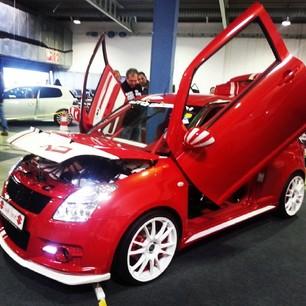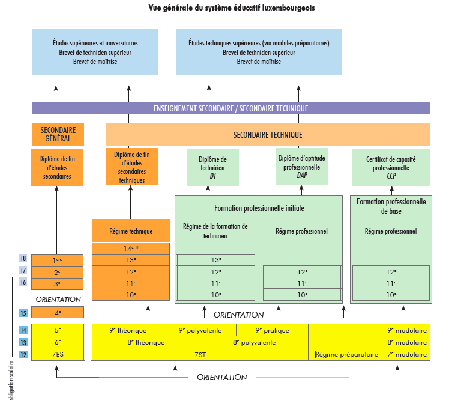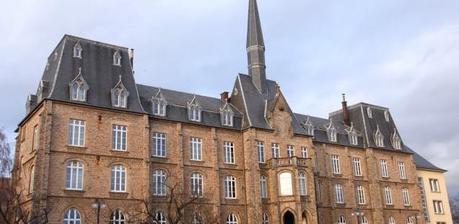Do you get to this point in the year and go “woooooooooaaaaaahhhhhhh!!! it’s almost December..where did the time go this year?!!!” Well, that’s me right now. When you live abroad you have to be more organised when it comes to the holiday season. There are trips to book, possible visitors to accommodate and, more importantly, presents to purchase to ensure they get to where they need to be in a timely fashion. I am at that stage when I really need to be organised and so far I am just really good at thinking about it.
We’ve actually been keeping quite busy of late. We recently visited the Lux Auto Show again. Honestly, it was pretty similar to the one last year but when you’re outnumbered by men in the house, it’s not something you can easily wriggle out of and, of course, we had a good time. Gareth takes great pains to educate me about things like the new BMW 4 Series and Aston Martin’s Vanquish, but I only have eyes for the vintage models and I seem to get drawn repeatedly to things like vintage American Mustangs or Fiats, which, to my eyes, look really cool, so therefore = ‘good’. This is vehicular blasphemy, apparently. Whatever. You have to get this in context folks, it’s coming from a 41 year old man who drives a red Suzuki Swift (‘sport’ version, no less). I am just teasing because he crunched the wing mirror on my Tiguan.




Then it was onto Petange down in the south of Lux to the annual Fond de Gras/ St Nicholas day to catch the wonderful old steam train, have the kids get just a little bit scared by Black Pete and his twin and, after a 20 minute chug to Fond de Gras, on to meet the man himself: St Nicholas, as we stuff our faces with frites and sausages. The kids queued patiently for Saint Nic and, like last year, he was just great with them, taking his time and allowing plenty of photos. The kids loved it, and this year there was even a little ‘cinema’ set up inside an old steam train carriage, alongside the model trains puffing around, and the same convivial, family atmosphere. Great fun, and particularly so for Oscar, who is Thomas the Tank Engine obsessed. If you’re reading this in retrospect, I should also point out that the address for your GPS is ‘Cour de Gare, Petange’ (thanks Kylie!).


One final, and incredibly interesting, evening I attended recently, almost by accident really, was an information evening on the Luxembourgish school system. I have to be honest, I’d received the mail-shot via my kids, from school, and also in the post, and just naturally assumed it was specific to their school. What it actually was, was a two hour talk given in conjunction with the Commission Consultative d’integration (CCI) and our local commune, and was basically a general overview of the Luxembourgish school system, geared towards foreign parents and newcomers.
Now don’t quote me on this, but, from my understanding, the CCI is a quasi-government body but made up of foreign parents of children who have long integrated into the local system and act as spokespeople and a kind of ‘go between’ of other foreign parents and the government. This talk was given by Bernard, a very personable French Rugby fanatic and father of four children who has lived in Luxembourg for years and knows a thing or two about the intricacies of the system. Lovely bloke, but couldn’t understand a bloody word, because it was all in French.
Of course, this being Luxembourg, there were translators on hand; one to handle any German speakers and another, to handle the lone English speaker: moi. She basically translated the entire thing to me as we sat at the back, much to the annoyance of a young woman in the mid section, who kept turning around to shush us repeatedly. I was mortified but my interpreter was unabashed and suggested that the usual form at these kind of events is for professional translators to have a headset and microphone and speak much more loudly and be way more annoying. Phew. I would have died a million times over had that been the case.
Honestly, if you get a chance to attend one of these events, GO. It was super, super helpful and filled in a lot of gaps I had, mostly about the way the higher education system works, in terms of the ‘Classical’ Versus ‘Technical’ high school system.
So here’s what I gleaned….
All pupils undergo an ‘orientation’ procedure at age 12 whereby the teachers and individual school’s Inspector will advise and work with the parents as to which route of secondary education is recommended for the child (Inspectors are very involved in the school and know each pupil, kind of like a Head teacher if you need an equivalent term).

The Classical System explained (kind of).
In a nutshell, the Classical system is the more academic and traditional if you will, and is the route to take if you intend to go on to higher education, University, or take a Master Crafstsman’s diploma. I would liken it to a British grammar school or private school in terms of the type of more rigorous academic schedule and subjects (latin etc). Children will go on to more specified areas of study pertinent to their desired career path, following another Orientation process at age 15.
All children are expected to have an excellent grasp of German and French to enter the Classical system, and studies stretch over 7 years in preparation for students to take the Diplôme d’études Secondaires (DES). English is taught from the second year.
Kids not equally fluent in German and French can enter the Classical system too (so that would essentially be older newcomers), providing they are suitably academically able, but will only be able to study towards the International Baccalaureate (IBO), where they can also opt to be taught in English only from the age of 14, or French only from 15. The IBO is legally recognised as the equivalent of the DES in Luxembourg and internationally accepted worldwide.

Above: Athénée de Luxembourg - ugly building, excellent reputation.
The Technical System Explained (sort of again).
As the name suggests, the ‘Technical’ system is more vocational and geared towards specific professions. There are various streams within this umbrella which cater to different levels of academic ability and students will eventually go into one of four streams following yet another Orientation process at age 15: Technical, Technician’s and two levels of Vocational (a higher and lower). Each stream will result in a different level of qualification. The earliest a child can leave is age 17.
Intensive lessons in French will be given to newcomers not fluent in French, German or Luxembourgish. Children with a good level of education in their home country, but with no solid grasp of Luxembourg’s languages will follow the courses of the lower section of Technical education, but with intensive courses in either German or French. French is phased in as the language of instruction, but by grade 9 (14 years of age) all classes will be taught in French. (German is the main language of instruction up to that point). From grade 10 onwards, many vocational and technical courses are also offered in French. It probably sounds really complicated, or rather, I have over-complicated it. Take a look a the diagram above to get a better idea of the structure.

Above: Lycée Technique des Arts et Métiers - great building, no idea about the reputation!
Now I won’t lie, I get the impression there has been some snobbery traditionally when it comes to these schools. But, as a newcomer, I couldn’t help but think they sound really great. Apparently there are many professions in Luxembourg which require you to go to a Technical school, regardless of academic ability, and that’s purely to ensure the kids coming out of school have the appropriate level of practical experience in their chosen profession (so nursing for instance). In the past, teachers were only allowed to qualify via the Classical route, for instance, but now that’s no longer the case, and can qualify via the Technical route too.
Best of Both Worlds
One interesting point to note about the two systems is that many schools partner up, i.e. a Classical and a Technical will work closely together and often will be situated next door to one another. If a child is showing signs that they would fair better in a more academically rigorous environment, they can be moved across to the Classical section, pronto, and visa versa.
Another important note on the entry and selection process. In the old days, kids would be assessed at 11 in an exam and that would be it, bosh, their academic future set in stone, based on that one exam. These days, it’s based more on continuous assessment, with the entire final year before secondary taken into account and the final term being the most critical. Basically, it won’t come as a shock to parents the route your child is destined for, and you will be consulted and well informed and aware of your child’s progress along the way, and likely academic inclination. As such, there are plenty of opportunity for preparedness either way. The great thing is that there is a lot of choice, you are not bound by your geographical area. So if you live outside of Lux city and your child wants to attend a school in the city, they can opt to do so, or visa versa. There’s even a specific sports oriented school too.
Open days are a big deal
The talk really highlighted the seriousness given over to the Orientation process in general, and that school open days are a big deal, with past and present students brought in to discussions with potential students as well as teaching staff. My interpreter said you will come away with a very clear idea about the school ethos and culture and academic leanings etc. It’s not just a dog and pony show. I liked that. Bernard suggested kids visit a year before their official orientation year and again during orientation time, to get a really good feel for each school and to see how they measure up a year on. Good advice.
One of the good things about having my own personal interpreter for the evening, was that I was able to glean more of a personal slant from a real parent who was not only personally invested in the system, owing to having a child at secondary school here, but also had a broader view in terms of how it’s working in a country with 50% foreigners. I try to ask the right questions in order to get a real sense of how much of what’s being said is gloss and how much is reality. It was abundantly clear that the parents were incredibly pro the system. My interpreter was disarmingly frank about the snobbery surrounding the two systems within Luxembourg based on how things used to be, and how certain elements within those system were initially very reluctant to instigate changes. But its clear that she was thrilled with the school her son is attending (Classical in Mersch). She told me it was a pilot scheme school that had chosen to adopt its scheme as it was working fantastically, and was a popular choice. I was certainly taken with the many extra curricular activities she told me about that are on offer to the kids there, during break and after school.
The end result
One of the most interesting things I took away was a sense that the government is really trying to nail one of the main points of education: to ensure its populace get a job. My impression overall is that there is a highly protectionist agenda within Luxembourg to ensure that people are properly trained, and are able to retain jobs. It’s why, if you don’t speak the lingo, and want to practice certain skilled professions, you’re unlikely to be able to do that because you will have needed to take specific qualifications here and gone through the local system. Frustrating for outsiders, and even more so for many of the children born and bred here, but educated in English or French speaking international schools; but I think works in your favour if you plan on staying around and having your kids go the local school route.
(side note: It’s interesting how many kids who are educated here in international schools, with non native Luxembourg parents, do come back to settle permanently in later life once they have a family, and so worth considering for your own child’s opportunities down the line, thinking beyond University. I think if you’re unsure however, or don’t see yourself staying here for the duration, then, sure, maybe it’s wise to keep your kids in a native speaking environment they are familiar with).
When I asked about the types of University opportunities available to kids from Luxembourg, and particularly the local University, my interpreter was pretty frank that, traditionally, kids weren’t beating the door down to attend the local University, but perhaps that is changing. She was quite matter-of-fact when reeling off the types of Universities kids tend to apply to: Oxford, Sorbonne, London School of Economics and the big technical ones in Germany etc. Really? I got the impression this is the norm for many that have gone the Classical route. Maybe not everyone’s cup of tea, but will please some.
I guess my long-winded and, admittedly, less than comprehensive overview (I took no notes), is that there seems to be real opportunity within the local school system to shoot for the stars academically (and come out speaking three or four languages interchangeably), if that’s what rocks your world, but if you want to be, say a mechanic or a Forest Ranger, there are quite structured and vocational based routes to get you there so you acquire actual, valued skills that will get you a real job that you’re likely to keep. It’s not a bad system in theory, when you think about it, and obviously, as a parent, it’s largely down to my own involvement too. Obviously things are different in practice, and I have no idea how, say, learning difficulties might be handled, for instance. But on paper, it feels as though the government is trying to make it work, which can’t be easy given the huge non-native Luxembourgish population and regular influx of newcomers.
We’ll see how it all pans out. It’s too early to say whether the broader system is good, great or mediocre, but my immediate experience and gut feeling is highly positive, and that’s the only thing I can go on right now. It was certainly really worthwhile going along to this talk and I was really impressed with the overall commitment by authorities to engage residents and provide help and information.
And finally….
On a final note, we were recently in a playroom and Henry had befriended a couple of local kids. This isn’t unusual for him, he’s quite sociable, but, obviously, he’s not able to communicate (funny how that never seems to stop kids playing). This time, however, he said he understood much of what they were saying and was able to speak to them too. He’s been in local school a total of 4 months all in, excluding summer holidays, so, although he does seem to have more of an aptitude than most for languages, it was quite a breakthrough moment for me as a parent and, hopefully encouragement for those who are contemplating a similar route and worrying about their child’s language integration.
For more information contact:
www.men.public.lu
